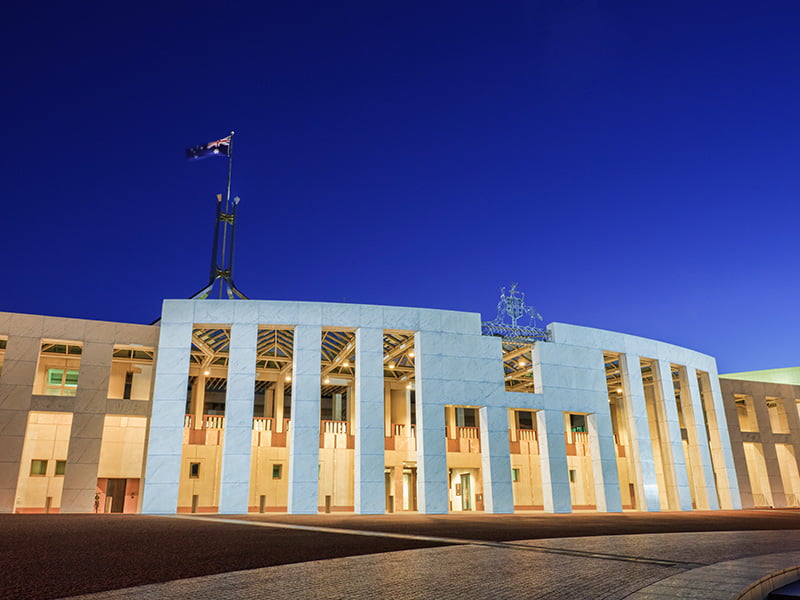Competition watchdog boss Rod Sims has knocked back Facebook and Google’s suggested “fixes” for the media bargaining code and accused the tech giants of “brinkmanship” in threatening to withdraw services from Australia in retaliation.
Appearing at a public hearing held by the Senate committee investigating the legislation introducing a bargaining code between Google and Facebook and Australian media companies, Australian Competition and Consumer Commission chair Rod Sims rejected the changes that these tech giants had called for earlier in the day.
The legislation was introduced to Parliament in December, and if passed will implement a bargaining code requiring Facebook and Google to enter into final offer arbitration to determine a revenue sharing deal with local media companies for the use of their content.

It will also require these tech firms to give 14 days’ notice of any relevant algorithmic changes as the result of human intervention.
The code was a key recommendation of the ACCC’s 18-month inquiry into digital platforms and was introduced to Parliament by the government with some slight tweaks.
Representatives from Facebook and Google appeared before the inquiry on Friday morning, with both highly critical of the code.
Google Australia managing director Mel Silva said the company will likely withdraw its search service from the country if the code is implemented, while Facebook had threatened last year to block the sharing of Australian news content if it goes ahead.
Both tech giants have pushed for a series of changes to the code if they are to support it and not withdraw their services. These include the removal of the forced arbitration in favour of standard commercial negotiations, and changes to the algorithm notice requirement.
But Mr Sims said the forced arbitration model is crucial to address the power imbalance between media companies and Facebook and Google and cannot be removed from the code.
“This is a code they don’t want. Google and Facebook like to do things on their terms. I think the code does what it is intended to do – it is workable, it allows for a process of negotiation and I have every belief that both parties will want to do commercial deals and then you’ve got arbitration there, which is what really gives strength to the bargaining for the news media businesses,” Mr Sims said.
“I think it’s workable, this is just something that Google and Facebook don’t want. This deal will allow proper commercial deals to be done. You can only have that when you’ve got reasonably even bargaining power,” he said.
“You can’t do a deal with a monopoly unless you have something on your side. This code gives the possibility of arbitration, which I suspect won’t be used very often, but that evens up the bargaining.
“If you don’t have arbitration, you don’t have any evening up of the bargaining power. If they don’t want arbitration I don’t see how you accommodate that. If there are suggestions that could help this be a better code that’s fine, but suggestions to make the code unworkable are not fine.”
The tech giants are engaged in brinkmanship by threatening to withdraw services from Australia in response to the code, Mr Sims said.
“Given this is a code they don’t want, I think it’s understandable they’re going to be saying a range of things to prevent the code coming into force. There was never going to be a code where they say, ‘this is terrific’,” he said.
“I think where we are is not unexpected in the sense that they have many concerns with it. That is what you’d expect them to say. There’s always brinkmanship in serious negotiations, but I don’t know exactly what they’re going to do here.
“I’m not surprised at being where we are, we’ll just have to see what they’ll do.”
Do you know more? Contact James Riley via Email.

